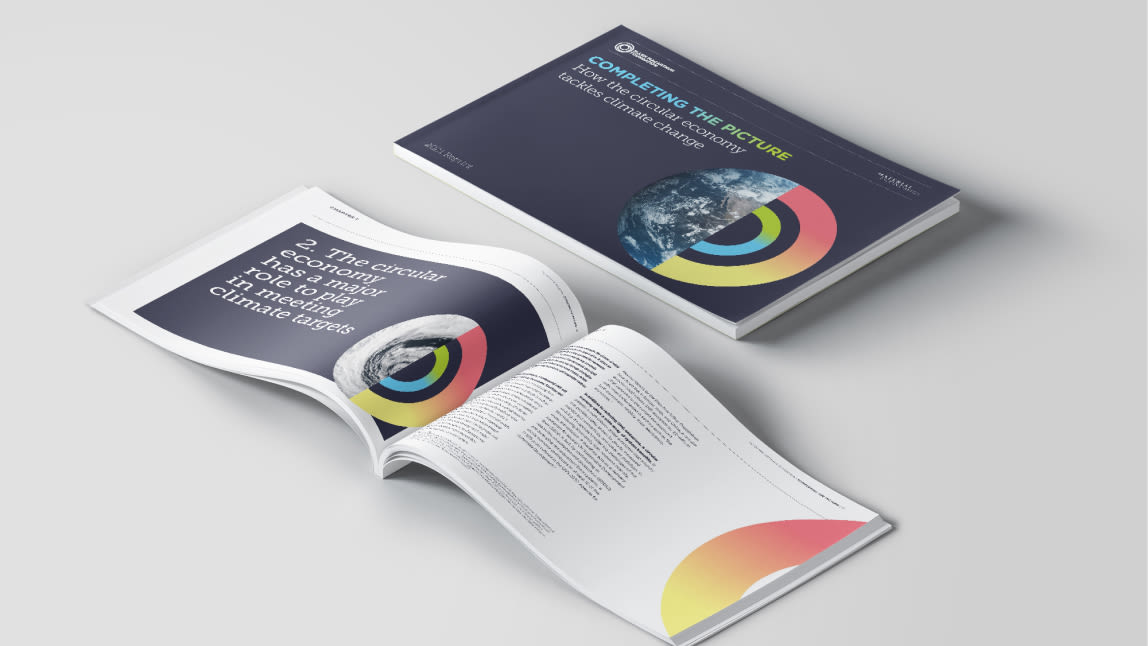The transition to renewable energyrenewable energyEnergy derived from resources that are not depleted on timescales relevant to the economy, i.e. not geological timescales. is critical to tackling climate change, but it’s only half the story. 45% of global greenhouse gas emissions come from the way we make and use things, including our food. We need a circular economycircular economyA systems solution framework that tackles global challenges like climate change, biodiversity loss, waste, and pollution. It is based on three principles, driven by design: eliminate waste and pollution, circulate products and materials (at their highest value), and regenerate nature. — an economy designed to eliminate waste and pollution, circulate products and materials, and regenerate nature — in order to reduce emissions.
We held a film screening and panel discussion at the Glasgow Science Centre IMAX Cinema, in the COP26 Green Zone, to explore how the circular economy can tackle climate change in two specific sectors — food and mobility.
The session — Fix the economy to fix climate change — was led by the Foundation’s Institutions, Governments, and Cities Executive Lead, Joss Blériot, Food Design Lead, Gaëlle Le Gelard, and Governments Lead, Miranda Schnitger. We were joined by the following speakers:
Isabel Dedring, Global Transport Leader, Arup
Rob Cameron, VP, Global Head of Public Affairs and ESG Engagement, Nestlé SA
Anders Kӓrrberg, Head of Global Sustainability, Volvo Cars
Jane Ewing, Senior VP, Sustainability, Walmart
Francisco José Moura de Castro, Special Advisor for Sustainability, City of São Paulo
Elliot Treharne, Joint Interim Assistant Director for Environment and Energy, Greater London Authority






